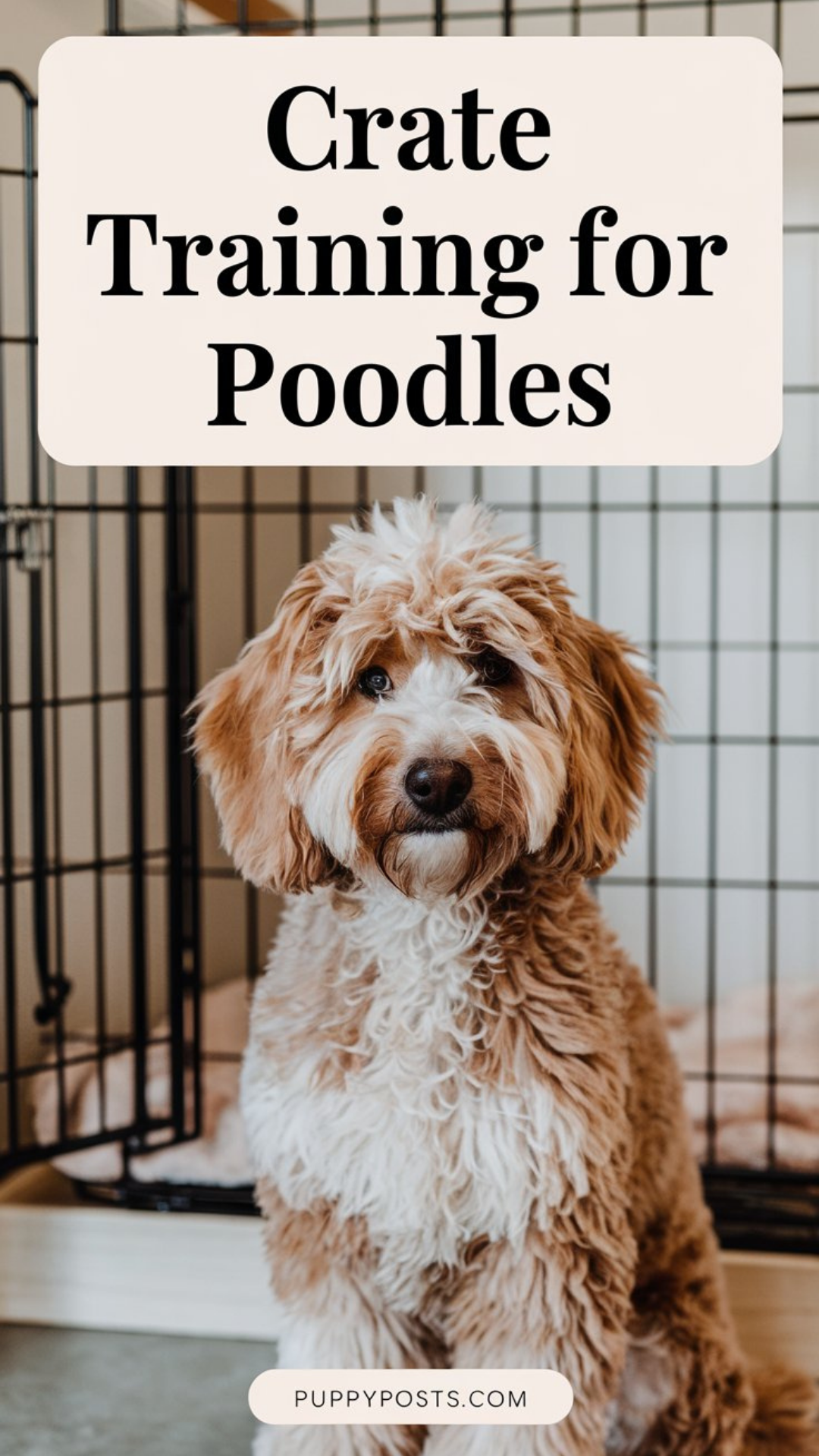Crate training for Poodles
Let’s cut through the fluff: crate training your poodle isn’t optional—it’s necessary. I don’t care if you’ve got a standard, miniature, or toy poodle. They’re all sharp, intuitive, and eager to learn. But without structure? That intelligence turns into mischief, anxiety, and chaos.
I’ve spent a decade treating pets and running a sanctuary for strays. I’ve seen dogs come in labeled as “problem animals” when the real issue was this—no boundaries, no consistency, no crate training. So, if you’ve brought a poodle into your home, here’s the truth: crate training is your job, and the sooner you take it seriously, the better life will be for both of you.

Let’s cut through the fluff: crate training your poodle isn’t optional—it’s necessary. I don’t care if you’ve got a standard, miniature, or toy poodle. They’re all sharp, intuitive, and eager to learn. But without structure? That intelligence turns into mischief, anxiety, and chaos.
I’ve spent a decade treating pets and running a sanctuary for strays. I’ve seen dogs come in labeled as “problem animals” when the real issue was this—no boundaries, no consistency, no crate training. So, if you’ve brought a poodle into your home, here’s the truth: crate training is your job, and the sooner you take it seriously, the better life will be for both of you.
Why Poodles Need Crate Training
Poodles aren’t just smart—they’re emotionally tuned in. They notice everything, from your tone of voice to your routine. That’s great if you give them structure. It’s a disaster if you don’t.
A crate:
- Gives them a secure, quiet space to relax
- Helps with housebreaking and controlling messes
- Prevents destructive behavior when you’re not home
- Builds confidence through predictable routines
This isn’t about locking your dog away. It’s about teaching independence in a safe, controlled way. A crate-trained poodle is calmer, more obedient, and easier to manage—for vets, groomers, and you.
Start Strong, Stay Consistent
Don’t wait for problems. Don’t “see how it goes.” Introduce the crate from day one. Feed your poodle in the crate. Give them high-value chews in there. Make it a positive space—but don’t bribe your way through it. Be calm, be firm, and don’t cave at the first whine.
And here’s a big one: never open the crate when your poodle is barking, whining, or throwing a fit. You do that, and congratulations—you just taught them that noise gets results. You want calm behavior? Only reward calm behavior.
What Not to Do (Pay Attention)
Here’s the part people love to ignore—until their “brilliant” poodle starts chewing the drywall or howling through the night.
Don’t:
- Use the crate as punishment. It’s a sanctuary, not a prison.
- Leave your dog crated for 8+ hours a day. That’s neglect.
- Toss them in and walk away with no prep. You’re building fear, not trust.
- Flip-flop on the rules. Poodles will outsmart inconsistency every time.
If you treat the crate like a useful tool and not a cage, your dog will follow your lead. But if you’re inconsistent, soft, or lazy about it, don’t blame the dog when things go sideways.
Time Limits and Realistic Expectations
Use the basic guideline: your poodle can stay in the crate for about one hour per month of age (up to about 6 hours max during the day). At night, most adult poodles can sleep in the crate 7–8 hours. But they still need exercise, interaction, and mental stimulation during the day. Crating isn’t a substitute for engagement.
Also—crate size matters. Too small, and your dog is cramped. Too big, and they’ll use one end as a toilet. Choose a crate they can stand, turn, and lie down in comfortably. Add a soft mat, safe chew toys, and no drama.
The Bottom Line
You don’t “hope” a poodle grows into a well-behaved dog. You raise them into one—with clear rules, calm leadership, and a solid crate routine. Skipping crate training because you feel guilty or lazy doesn’t make you kind—it makes you careless.
I’ve worked with every kind of dog under the sun. Poodles are among the brightest, most trainable breeds out there—but if you don’t channel that brain, you’ll end up with a four-legged manipulator who knows exactly how to run your house.
Don’t let that happen. Crate training isn’t harsh—it’s responsible. It’s what good owners do. So start today, stay consistent, and give your poodle the structure they need to thrive.







